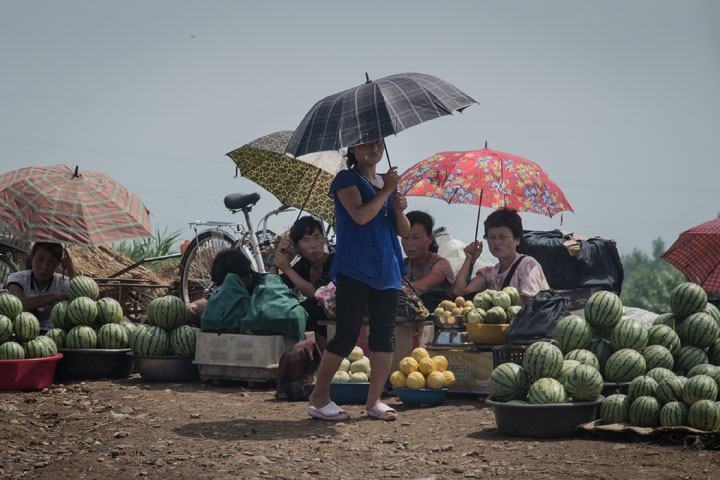Sanctions imposed by the United Nations and various countries are hurting ordinary people in North Korea, said the United Nations Special Rapporteur on the situation of human rights in the DPRK.

Speaking to a UN General Assembly committee on Thursday, Tomas Ojea Quintana said his research shows that sanctions may be preventing things like cancer medication and wheelchairs from getting into the country.
Humanitarian workers are also having trouble securing supplies, he said.
“History has shown that sanctions can have a devastating effect on the civilian population,” said Quintana. The international community needs to make sure that sanctions are not a “collective punishment” on North Korea’s citizens.
Quintana’s presentation happened just before the United States imposed new sanctions on seven North Korean individuals and three entities over what it called serious human rights abuses.
“Today’s sanctions target the North Korean military and regime officials engaged in flagrant abuses of human rights,” U.S. Treasury Secretary Steven Mnuchin said in a statement. “We also are targeting North Korean financial facilitators who attempt to keep the regime afloat with foreign currency earned through forced labour operations.”
Among those targeted by the sanctions were the director and the deputy director of the Military Security Command, the first vice minister of the Ministry of People’s Security and the labour minister. The United States also sanctioned North Korea‘s consul general in Shenyang, China, and a diplomat at North Korea‘s embassy in Vietnam.

Get breaking National news
WATCH: Hyeon Soo Lim, a Canadian pastor who was freed from North Korean captivity talks about how he survived his ordeal.

A report issued by a UN commission of inquiry into human rights in North Korea in 2014 found evidence of multiple human rights violations, including public executions, political imprisonment, and even using access to food as a means of controlling the population.
“These crimes against humanity entail extermination, murder, enslavement, torture, imprisonment, rape, forced abortions and other sexual violence, persecution on political, religious, racial and gender grounds, the forcible transfer of populations, the enforced disappearance of persons and the inhumane act of knowingly causing prolonged starvation,” read the report.
Quintana said that he remains concerned about the human rights situation in North Korea in 2017, particularly in its various detention facilities. People are afraid of being sent there, he said, and in facilities near China where people who have attempted to defect are held, sexual and gender-based violence is common.
He’s also concerned about government corruption. An increasingly market-based economy has opened up opportunities for people to “better their situation” by bribing public officials, he said.
WATCH: The United Nations opened an Office of the UN High Commissioner for Human Rights in Seoul in 2015. North Korean authorities called the move a grave provocation and threatened unspecified retaliation. (From 2015)
He noted that the government still maintains strict surveillance on all forms of communication, though more people seem to have access to some information.
Quintana worries that the current security situation on the Korean peninsula and the discussion of the nuclear weapons issue could overshadow human rights concerns. He’s not sure his message of constructive engagement will be popular right now, but he urged the United Nations not to forget about the North Korean people.
“Behind the government of the DPRK, there are ordinary citizens who need human rights protection more than ever.”
— With files from Reuters


Comments